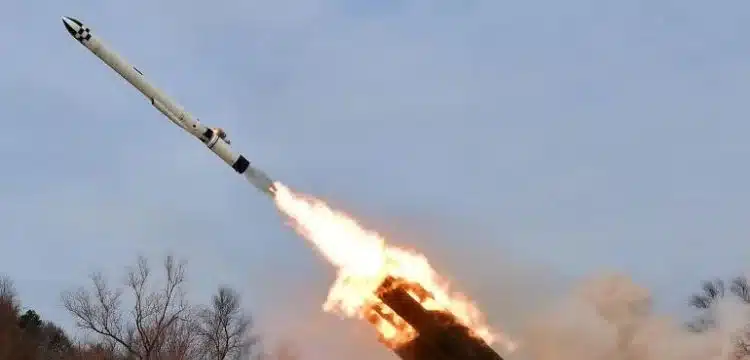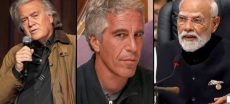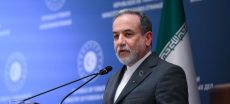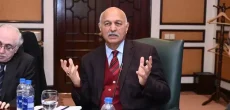[vc_row][vc_column][vc_column_text dp_text_size=”size-4″]North Korea conducted another round of missile launches on Sunday, marking its second such event within a week, according to South Korea’s Joint Chiefs of Staff (JCS). The missiles were launched at approximately 2300 GMT on Saturday. South Korean and US intelligence authorities are currently analyzing the details of the launches, though the exact number of missiles fired and their travel distances have not been specified by the JCS.
In response to the missile launches, the JCS emphasized that the South Korean military, in collaboration with the United States, is enhancing surveillance and vigilance. They are closely monitoring additional signs and activities emanating from North Korea. The recent missile launches follow closely on the heels of North Korea’s firing of what they referred to as a new strategic cruise missile named “Pulhwasal-3-31,” indicating potential nuclear capability.
Read more: North Korea Tests Underwater Nuclear System In Response To US Drills
Despite North Korea’s heightened confrontational stance towards the United States and its allies, officials in Washington and Seoul have not observed any imminent military actions planned by Pyongyang. Nonetheless, analysts and officials predict that North Korea may continue, or even escalate, provocative actions. This comes in the wake of the country’s advancements in ballistic missile development, strengthened cooperation with Russia and China, and the abandonment of its longstanding goal of peacefully reunifying with South Korea.
On the same day as the missile launches, North Korea’s state media, KCNA, criticized a series of military drills conducted by US and South Korean troops in recent weeks. The dispatch from KCNA warned of “merciless” consequences and highlighted the perceived threat posed by nuclear war exercises against North Korea. The statement indicated a sense of urgency for full preparedness for a potential deadly war.
North Korea had previously tested a cruise missile with possible nuclear strike capabilities in September 2021. While UN Security Council sanctions don’t explicitly prohibit the testing of conventional cruise missiles, South Korea’s Defense Minister Shin Won-sik denounced the recent launches as a serious threat not only to his country but to the wider region.
The missile launches occurred shortly after a three-day visit to Pyongyang by a Chinese delegation led by Vice Foreign Minister Sun Weidong. During the visit, both sides expressed a commitment to enhancing tactical cooperation and defending common interests. In a separate development, a North Korean delegation headed by Sports Minister Kim Il Guk departed for China, according to a dispatch from KCNA.
In summary, North Korea’s recent missile launches, occurring in quick succession, have heightened tensions in the region. The international community, particularly the United States and South Korea, is closely monitoring the situation, emphasizing the need for vigilance and preparedness in the face of potential escalation by North Korea.[/vc_column_text][/vc_column][/vc_row]











